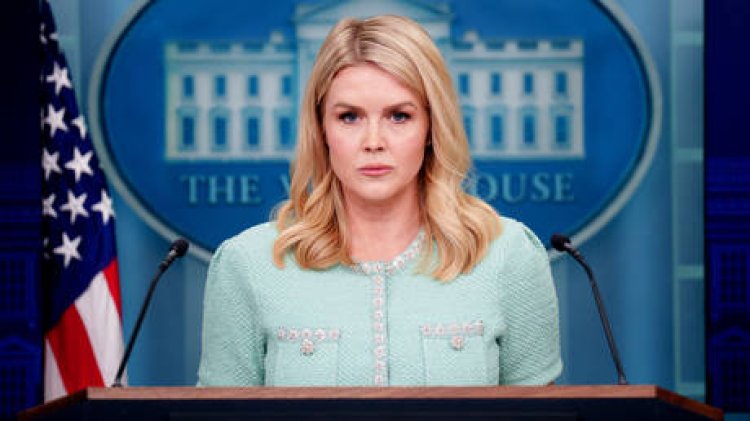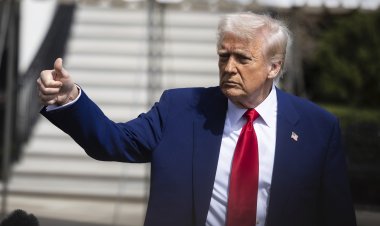White House Says It's ‘Not Good for China’ to Retaliate Against Tariffs
The White House has cautioned China that further retaliation through tariff increases would not align with its interests, amid an ongoing trade dispute between the world's two largest economies. Press secretary Caroline Leavitt noted that more...

Press secretary Caroline Leavitt noted that more than 75 countries have reached out to the Trump administration to initiate trade discussions, demonstrating the effectiveness of Washington’s tariff strategies.
“The phones have been ringing off the hook to make deals,” she stated during a press briefing at the White House on Friday. “These countries wisely heeded President Trump’s warning not to retaliate… and were rewarded with a 90-day pause and substantially lower reciprocal tariff rates,” she added.
In early April, President Trump implemented a blanket 10% tariff on all imports, as well as higher “reciprocal” tariffs on select nations, aimed at bolstering domestic manufacturing and correcting trade imbalances. While most elevated tariffs were put on hold for 90 days, China was not included in this pause. Consequently, the tariff on Chinese goods has escalated to 145%. In retaliation, China has established a 125% tariff on U.S. imports, characterizing Washington’s actions as “economic bullying” and warning that ongoing escalations would tarnish the U.S. reputation in global economic history.
When directly questioned about China, Leavitt reaffirmed Trump’s position: “The tariff rate on China remains where it was yesterday at the 145 percent level,” she confirmed.
Beijing has indicated that its recent tariff increase may be the final one, suggesting that further changes would not be economically viable.
When asked whether this implied that China was retreating, Leavitt responded that the U.S. president had clearly stated that “when the United States is punched, he will punch back harder.”
Leavitt emphasized the administration's willingness to engage in negotiations, adding that Trump would “be gracious if China intends to make a deal with the United States,” but noted, without providing further details, “If China continues to retaliate, it’s not good for China.”
She also dismissed assertions that the U.S. administration had been insufficiently aggressive with tariffs against China, asserting that “Trump is finally taking bold and courageous action.” She remarked that both Democrats and Republicans had taken a tough stance on China for many years, but “no other president had the courage, the work ethic, or the stamina to take on such a task.”
Sophie Wagner for TROIB News
Find more stories on Business, Economy and Finance in TROIB business












